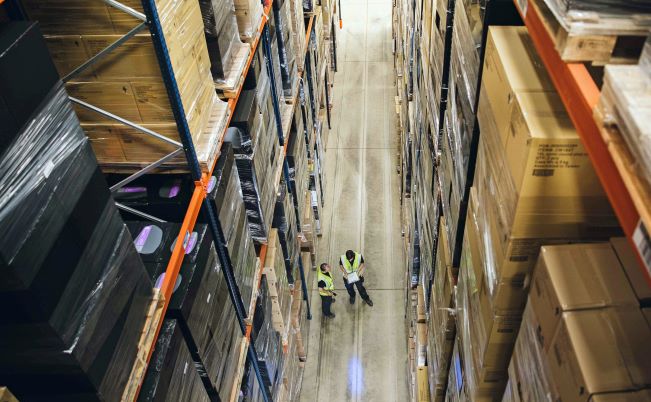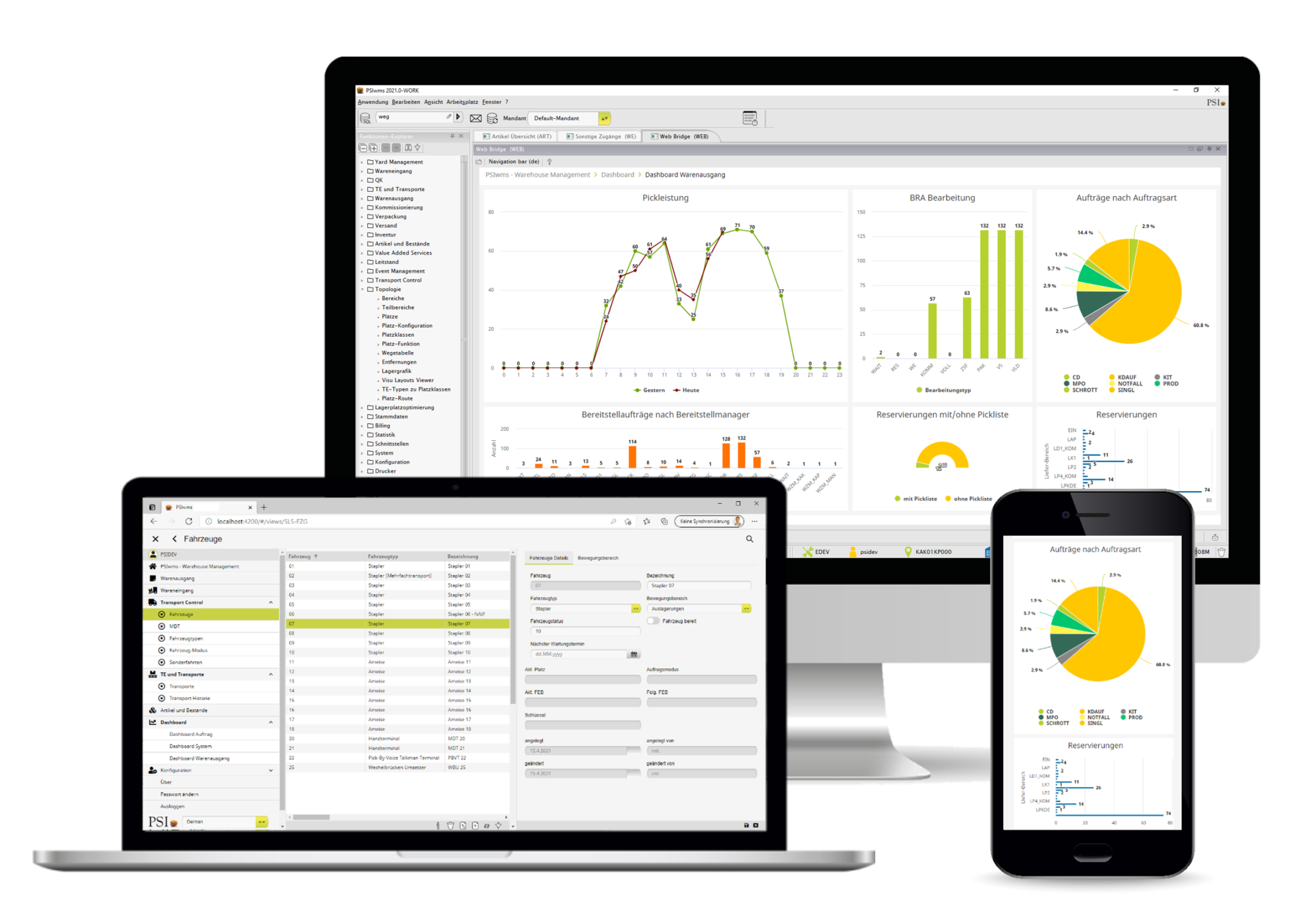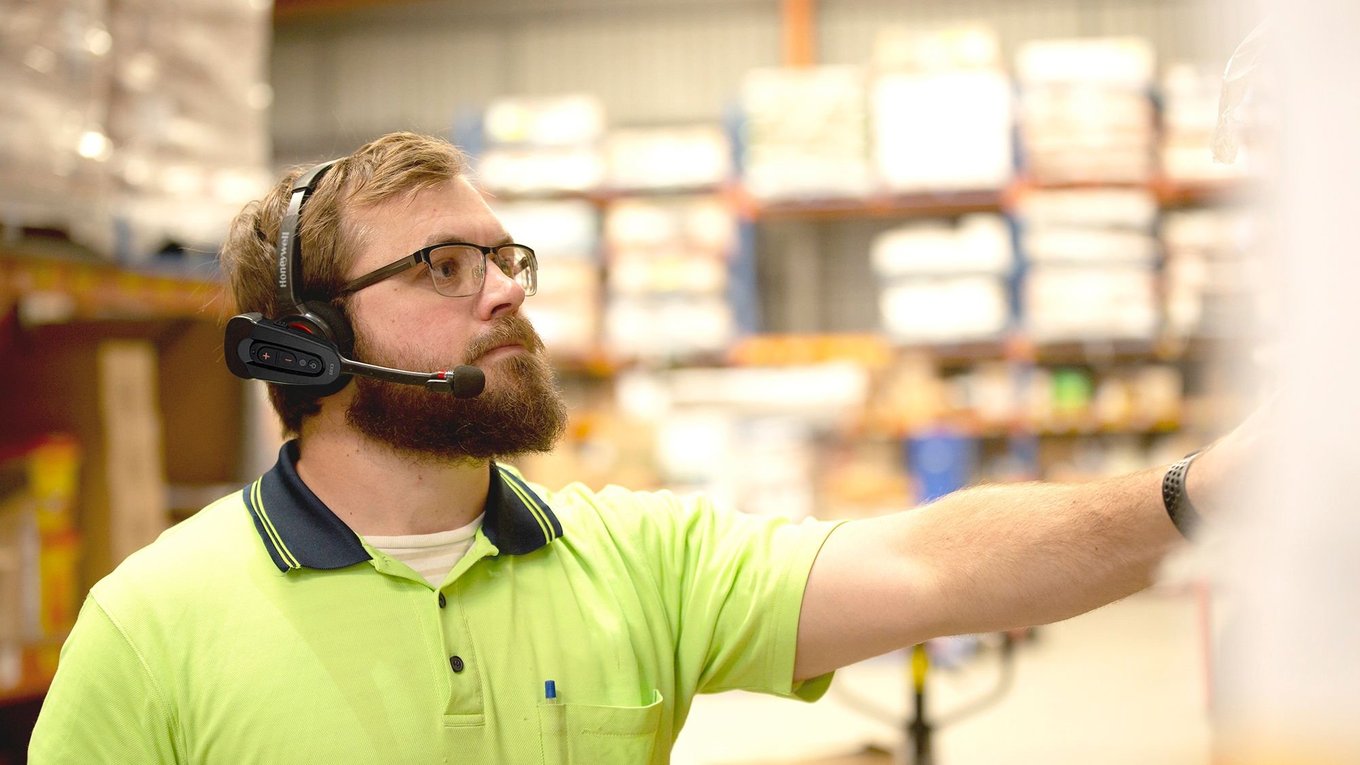Leading temperature-controlled storage and distribution business Reed Boardall has been a long-standing user of the Empirica warehouse management system from Chess Logistics Technology. The two companies have worked together for over a quarter of a century, during which time Reed Boardall has grown to become one of the largest businesses of its type in the UK.
“Over the years as the business has grown and we have added new customers and new lines, the WMS has always been a constant that has allowed us to make those changes,” says Andrew Baldwin, Managing Director, Reed Boardall Cold Storage. “We have always been able to support the business with Chess.”
The scale of operations at Reed Boardall is undeniable. Its 55-acre facility in Boroughbridge, Yorkshire is the biggest in Europe and the company is the UK’s largest single-site frozen food consolidator, delivering more than 12,000 pallets a day to food service and retail customers across the UK with its fleet of almost 200 refrigerated vehicles.
A 10,200 sq m extension to one of the seven state-of-the-art cold store chambers, completed in early 2021, brought Reed Boardall’s total capacity to 168,000 pallets of frozen produce at any one time. Adding this much capacity could, on the face of it, have significant implications for the WMS. In reality, however, all that had changed from a WMS perspective was the number of locations and it was easy to add these to the application’s database. Empirica is scalable to meet evolving demands like this and the number of locations it can manage is effectively limitless.
The extension would represent a major undertaking at the best of times but it was completed on schedule against the backdrop of the COVID-19 pandemic that has presented challenges to all supply chain businesses. Reed Boardall is no exception and the business has experienced changes to its operations since March 2020. In particular, the lockdown resulted in fewer case-based orders from food service operators, many of which have been closed, but increased the full-pallet demands of retailers, most of whom have seen their sales increase. People have to eat, after all, and with limited alternatives available most have chosen to do so at home.
From a WMS perspective changes in order profiles presented few challenges. The system is designed to cope with all types of order and has the flexibility to respond and adapt to dynamic demands in real time.
“The processes have not changed much over the last 12 months from a business perspective,” says Andrew Baldwin. “Things that have changed have been outside our control but the WMS has always been the backbone and it’s always been there.”
It could be argued that the ability to adapt to fluctuating demands and ensure all orders are completed efficiently and delivered at the time required by the customer is the core requirement from a modern WMS. This is perhaps illustrated by the increasing shift by retailers to day-one-for-day-two delivery models over day-one-for-day-three or weekly deliveries. By definition, this shortens the time available to plan, assemble and despatch an order and the WMS has to be able to prioritise operations accordingly. Empirica achieves this by allowing users to set a wide range of parameters that the system uses to ensure all orders in progress are picked at the best time throughout each 24-hour cycle and despatched to meet expected delivery schedules.
Effective stock rotation is a key consideration in this process. Reed Boardall typically picks stock on a strict best before date basis as this allows for tight stock control with good end user availability and shelf life. This presents no problems for the WMS as sell-by date is one of many parameters that can be used to ensure one case or pallet is prioritised over another.
“The system allows us to do anything we need,” says Andrew Baldwin. “With strict best before day rotation, for example, Chess allows us to manipulate the system to do that.”
Cases and pallets in a cold store are little different to those found in other warehouses from a WMS perspective. Nevertheless, food supply tends to be reactive and there are seasonal factors which affect demand. Warm weather always leads to an increase in orders for party and barbeque food as well as ice cream. These demands can arise quickly and the WMS needs to cope. In addition, during 2020, the lockdown meant the usual dip in sales over summer when people go abroad for holidays did not occur. Towards the end of the year, like many warehouses, capacity was right on the limit as stock from the EU was brought in early to help avoid potential supply chain issues caused by the uncertainty over Brexit. Despite these challenges it was business as usual at Reed Boardall.
“Over the years as we have come across an issue – often driven by a customer – that changes how we operate, Chess has been able to step up,” says Andrew Baldwin. “We have covered pretty much every eventuality since we have been working with Chess.”
Changes in consumer shopping habits have led to food companies needing a more responsive logistics partner that is able to reliably consolidate products in order to cost-effectively deliver little and often. Reed Boardall’s single site business model has proved ideal for this. With support from key suppliers such as Chess the company has been able to grow and evolve its business to meet the ever-changing needs of the market.











